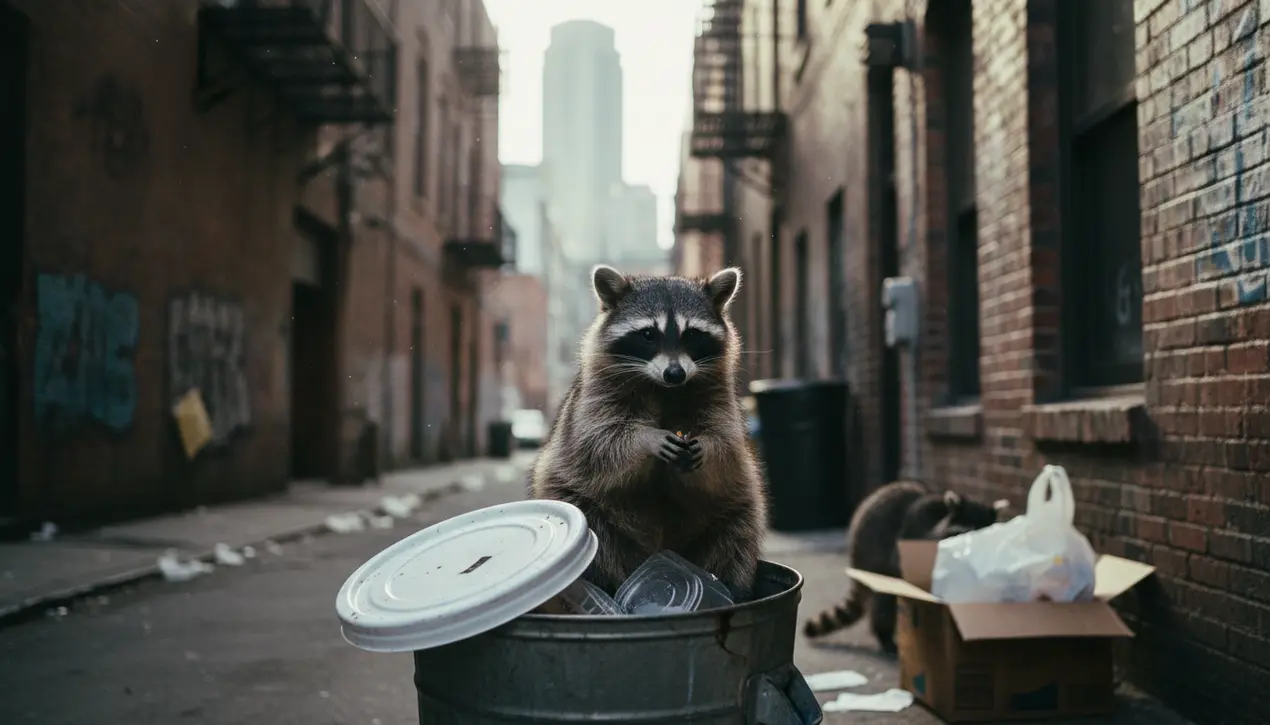
SciencebiologyAnimal Behavior
Urban Raccoons Displaying Early Domestication Traits.
RA
Rachel Adams
4 hours ago7 min read2 comments
The urban raccoon, that masked bandit of our back alleys and dumpsters, is undergoing a quiet but profound evolutionary shift, displaying early signs of self-domestication that echo the ancient pathways trod by dogs and cats. This isn't about humans actively taming these creatures; rather, it's a fascinating case of a species adapting its behavior and even its biology in response to the pressures and opportunities of city life.Researchers observing populations in major North American cities from Toronto to Chicago have documented notable changes. Urban raccoons are demonstrating increased boldness and reduced flight distances, often foraging in broad daylight mere feet from pedestrians, a stark contrast to their more nocturnal and wary rural cousins.More strikingly, there is emerging evidence of morphological shifts, including smaller skull sizes and altered stress hormone profiles, which parallel the 'domestication syndrome' observed in historical domestication events. The driving mechanism is classic natural selection: in the concrete jungle, the individuals most likely to survive and reproduce are not necessarily the strongest or fastest, but those most tolerant of human noise, light, and proximity.They are the ones clever enough to master complex latches on garbage bins, turning our waste into a reliable food source. This behavioral plasticity is key.Their remarkably dexterous, almost human-like hands, once used for extracting crayfish from streams, are now expertly employed in unscrewing jar lids and opening secured trash cans. This cognitive flexibility suggests a potential for a unique human-animal relationship, though experts like Dr.Sarah Benson-Amram of the University of British Columbia caution against romanticizing the process. 'What we are seeing is adaptation, not intentional domestication,' she notes.'These raccoons are problem-solving geniuses, but they remain wild animals with complex needs and potential disease risks, such as rabies and raccoon roundworm. ' The phenomenon raises profound ecological and ethical questions.As we continue to encroach on natural habitats, are we unconsciously steering the evolution of other species? The urban environment acts as a powerful filter, and the raccoon's success story provides a compelling case study in rapid contemporary evolution. The consequences are multifaceted.While some city dwellers delight in these clever neighbors, wildlife managers grapple with escalating human-raccoon conflicts. The long-term trajectory remains uncertain. Will urban raccoons continue down this path, potentially leading to a genuinely symbiotic relationship over centuries, or will the inherent risks of close contact create a new equilibrium? This ongoing natural experiment, unfolding in our very backyards, offers a unique window into how humanity's footprint is actively reshaping the wildlife with which we share our increasingly urbanized planet.
#raccoons
#domestication
#urban wildlife
#animal behavior
#evolution
#lead focus news
Stay Informed. Act Smarter.
Get weekly highlights, major headlines, and expert insights — then put your knowledge to work in our live prediction markets.
Related News
Comments
Loading comments...
© 2025 Outpoll Service LTD. All rights reserved.